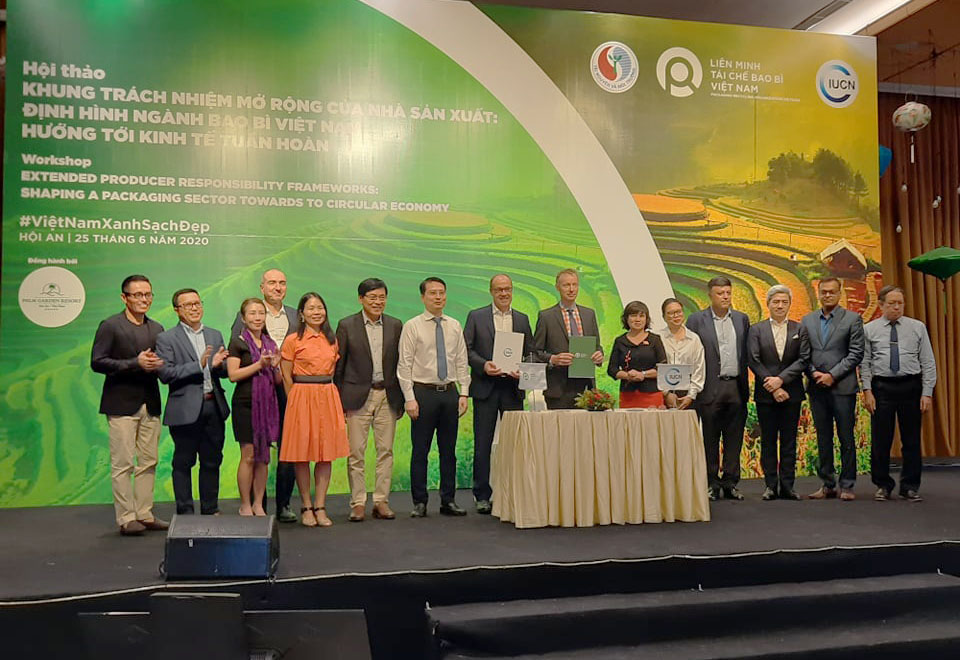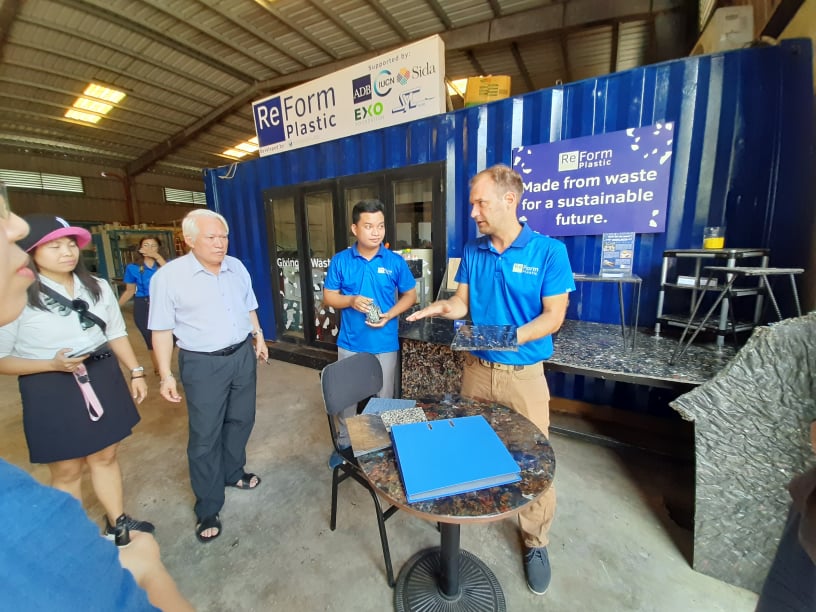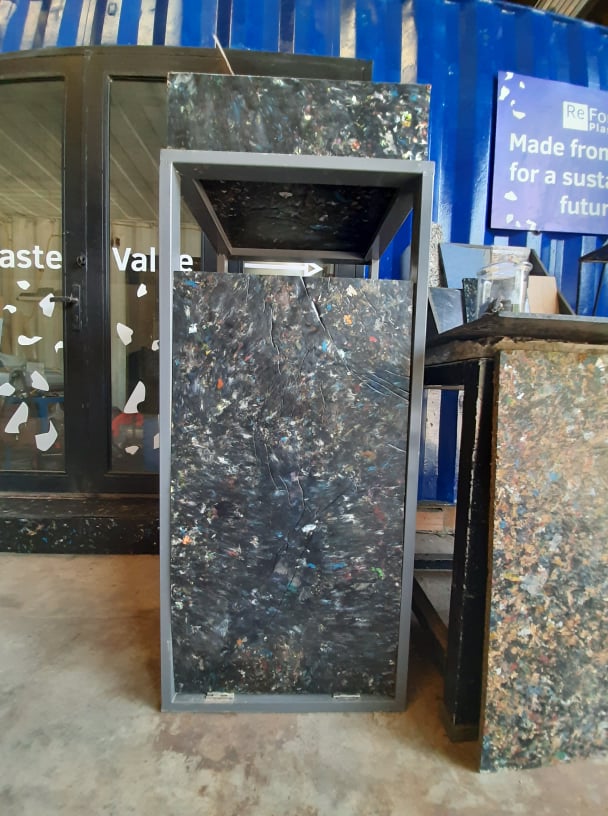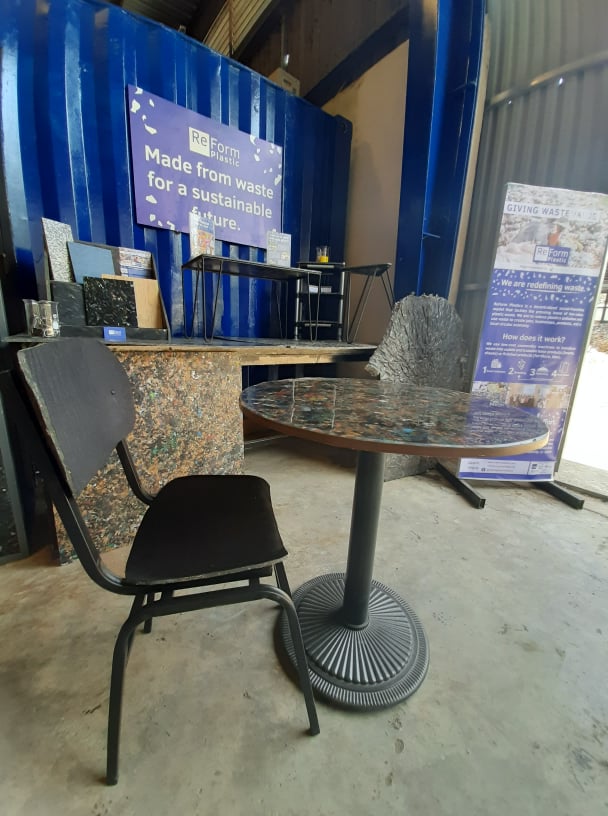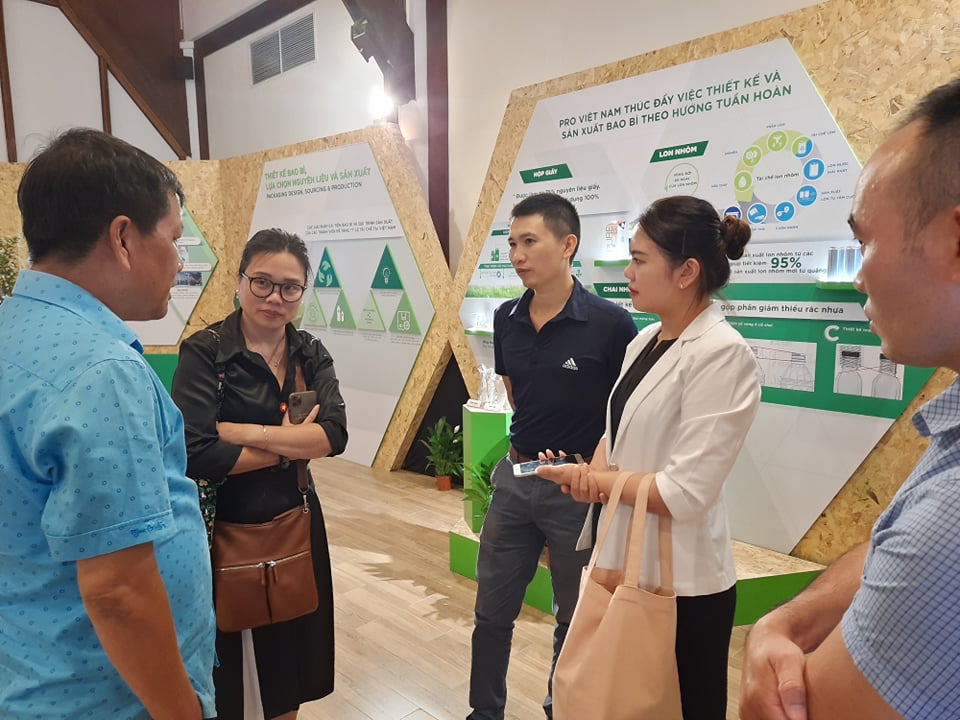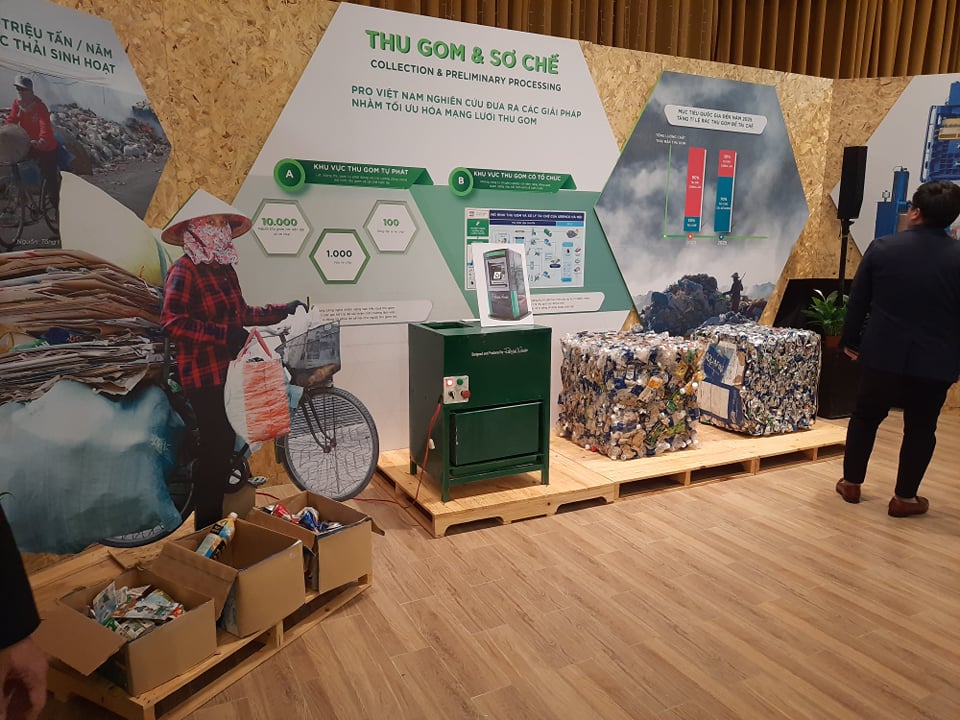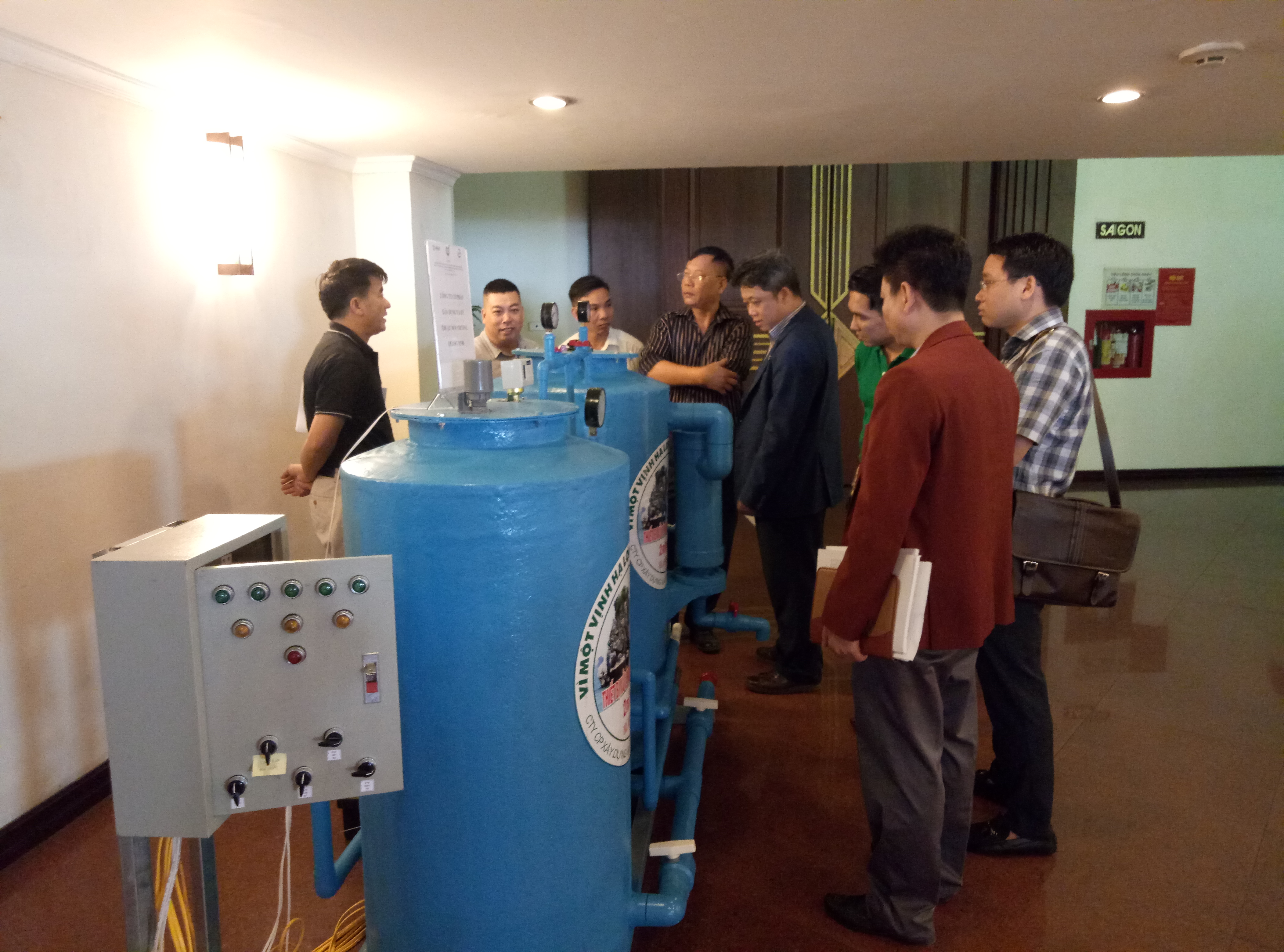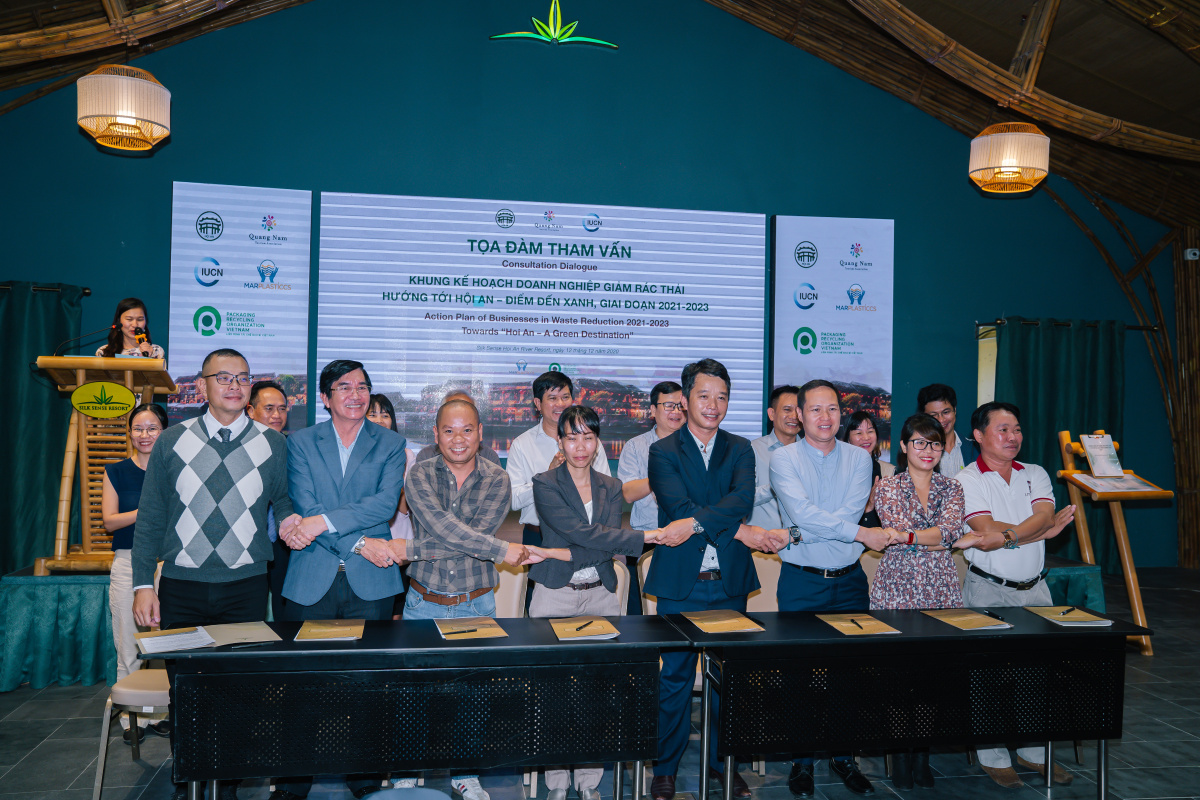Extended Producer Responsibility: an approach to improving solid waste management in Viet Nam
On June 25 2020, IUCN in collaboration with Packaging Recycling Organization Viet Nam (PRO Vietnam) and the Department of Legal Affairs (DLA) of the Ministry of Natural Resources and Environment (MONRE) organized a workshop “Extended Producer Responsibility (EPR) Legal Framework – Shaping a Packaging Sector towards Circular Economy in Viet Nam” in Hoi An, Quang Nam Province. With the participation of more than 100 participants from National Assembly, MONRE, MARD, universities, businesses, and NGOs, the focus was on the legal framework for EPR in revision of the 2014 Law on Environmental Protection (LEP).
Viet Nam faces huge pressures from solid waste as infrastructure and management cannot keep up with the growing volumes of waste, which has doubled in less than 15 years. Large amount of waste is uncollected with levels of uncollected waste ranging from 15% in urban areas to 45-60% in rural areas[1].
EPR is an approach whereby the producer’s responsibility for a product extends to the waste stage of the item. It involves producers taking responsibility for the management of products after they have become waste, including the collection, pre-treatment, preparation for reuse, recovery, or final disposal[2].
EPR reduces the cost of managing end-of-life products by reducing disposal, increasing recycling, and improving product design. EPR is a way for companies to take responsibility for recycling either by financing and/or by taking over the operational aspects from local government. This is critical in Viet Nam where government covers 80% of the cost of solid waste management, an unaffordable subsidy[3].
DLA is responsible for developing an EPR strategy in Viet Nam including formation of an EPR National Platform to facilitate EPR schemes. IUCN have been invited to join the platform.
The draft LEP identifies five groups of products subject to EPR include batteries and accumulators, electric and electronic devices, tires, lubricants, and packages. Mandatory recycling rates and projected financial contribution rates over a 3-year period will be proposed by the inter-sectoral committee and approved by the MONRE Minister.
Producers can participate in EPR either individually or collectively under the Product/Packaging Responsibility Organization (PRO) or the Vietnam Environmental Protection Fund (VEPF). To avoid free-riding, Producers (and importers) who do not adopt EPR are subject to fines.
To support waste separation and increase recycling, the draft LEP proposes regulations such as volume-based waste fees by using different waste bags for three types of waste (organic, recyclable, other); and deposit and return schemes.
Regarding hard-to-recycle or hazardous waste such pesticides, chewing gum, napkins, tobacco, and single-use plastics, producers and importers have to pay the VEPF to handle collecting and treatment. This funding will be allocated by MONRE to local authorities. VEPF will be responsible for monitoring implementation while producers will report to MONRE the quantity and volume of products sold on the market.
At the workshop, IUCN signed a MOU with PRO Viet Nam to jointly design and implement pilot projects for circular economy and support the EPR National Platform. PRO Vietnam, established in June 2019, is a coalition of 13 leading companies from the consumer goods and packaging industry that aims to contribute to a clean, green and beautiful Vietnam by driving the circular economy and making recycling of packaging more accessible and sustainable.
[1] Ibid.; Thông báo của Văn phòng Chính phủ: Kết luận của Thủ tướng Chính phủ Nguyễn Xuân Phúc tại Hội nghị trực tuyến toàn quốc về tăng cường kiểm soát ô nhiễm và bảo vệ môi trường (268a/TB-VPCP, 31 August 2016).
[2] UNEP. Draft practical manual on Extended Producer Responsibility.1–19 (2019)
[3] Nguyen Hoang Phuong, EPR workshop presentation
